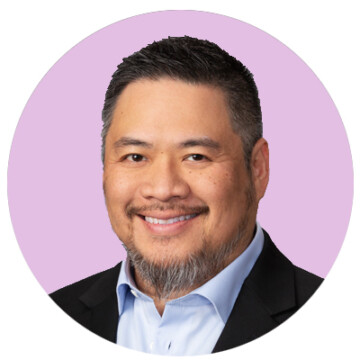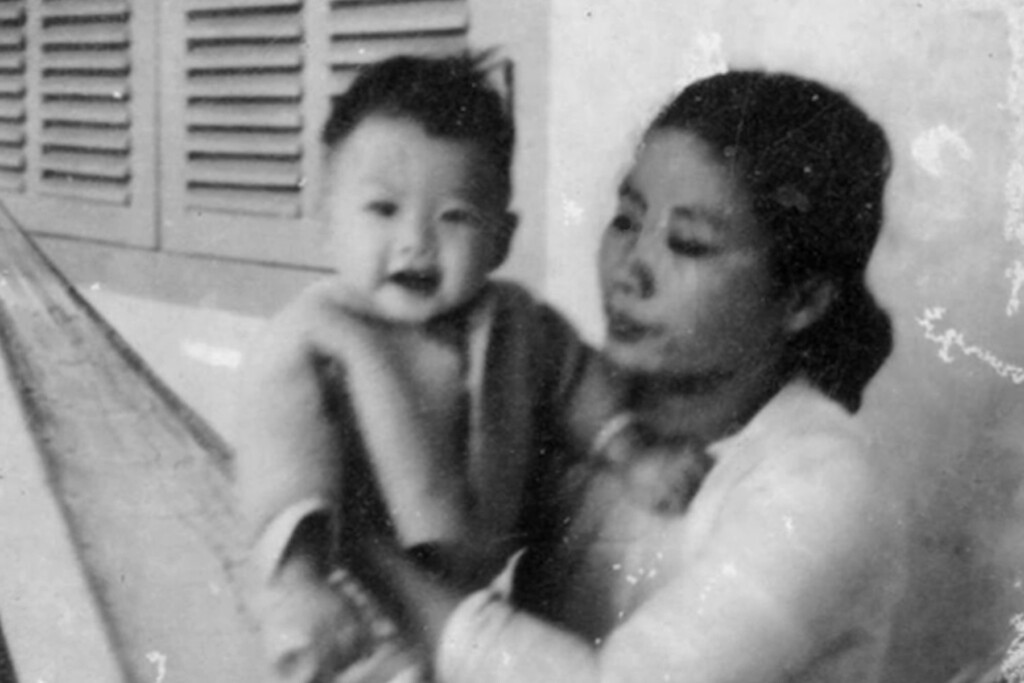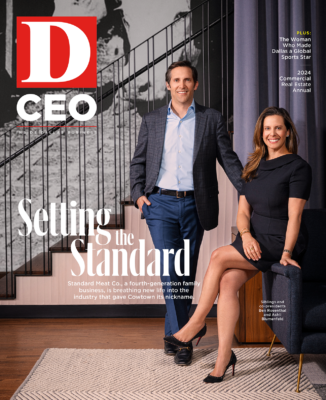
Khanh Nguyen can recall every detail of the day he and his family fled Vietnam in 1975 near the end of the Vietnam War. Nguyen’s father, a general in the Vietnamese army, defied orders, risked arrest and execution, and made plans for the family to safely leave the country. After plans fell through, a bowl of pho ended up saving their lives.
Nguyen and his family would trek their way through the Philippines and Guam before landing in the U.S. at Camp Pendleton in San Diego, California, where his family was processed to become citizens, eventually finding their way to Arkansas before finally settling in Boston where his oldest brother was already attending college. That put Nguyen and his family of 11 in a one bedroom apartment for a year until moving to Virginia before heading to Houston in 1979. He went on to attend the University of Houston and law school at the University of Texas at Austin, working a number of roles as an executive before launching Zalat Pizza in 2015.
Here, Nguyen shares details of his life-changing journey, and more:
“We didn’t have airline tickets that could take our whole family out of Vietnam, so we traveled from Saigon to one of the coastal cities because we heard that people could get on a boat to leave,” Nguyen says. “We stayed at this convent for two days, but no boats were coming in. So, we decided to stay one more night. My dad said, ‘In the morning, let’s pack up and drive back to Saigon,’ and said he’d try to work his connections with the American Embassy. And that was the day the country fell. But before we left, we had to eat. I remember one of my uncles animatedly talking, and somehow, he knocked a bowl of pho in his lap. He said, ‘You guys stay here, I have to go take a shower.’ In that time, they set up barricades on the road back to Saigon and said ‘The country is lost. You don’t want to go back there.’ So, we turned around. That bowl of pho saved our lives because had we gone back then and there, my dad would have been killed. The next day, the troop carriers came in, my dad walked up, introduced himself, they let us on, and we headed out to sea. And it took us probably two days to run into an American battleship.
“I’m eight years old and Vietnamese. I’m tiny. There’s nine kids and then my grandfather was with us. We had an aunt and her aunt and her husband. But you’re in a troop carrier that can carry 50 people coming up alongside an American battleship. These things are gigantic. So in the middle of the ocean, we have to go alongside next to it and climb up. So everybody including three and four year olds have to climb and scale a rope on the side of the ship. Probably seven stories. I think it was on our ship where we got up next to the battleship and a wave hit us and a mom had her three kids reaching out for the nets, and a wave hit them. And they all went under. At that time there was no saving anybody because there’s just thousands of people. So very, very dangerous.
“We were sleeping on the backs of the battleship they had built. I think hundreds of thousands of people got picked up and they built bathrooms out of two-by-fours, off the side of the battleship. You had to climb up and go into one of these makeshift outhouses. I was so tiny that I climbed in, and I looked down, and it was just an open slot where I could fit. And nobody was watching.
“Since my dad was governor of the Dalat Province we had probably 50 soldiers guarding us 24/7 that were camped outside of the governor’s mansion. We had a full staff, cooks, and people to take care of the house. My parents were not used to having to watch the children themselves because we always had nannies all of our lives. And so everybody was fending for themselves.
“We caravanned and the U.S. decides to take everybody to Manila, Philippines. I remember we got to an island and we were there for a day or two before the Philippine government told us to keep going—they didn’t want us there. We went all the way across the Pacific Ocean to Guam where they had this giant Air Force base. They unloaded thousands of people onto this base to have them processed. And what they came up with after was awesome. They did paperwork for everybody. They had to issue birth certificates and get you registered systems. They put out the word throughout the country in the summer of 1975 and asked people to volunteer to take in Vietnamese families. So church groups or generous individuals throughout the country just signed up. And if you had a sponsor, you would go live with them for a couple months while they taught you English and helped you get jobs and get on your feet.
“We didn’t stay in Boston long. My brother was finishing up his sophomore year and then he transferred to a college in the D.C. area. We moved there in 1976 and I went to school in northern Virginia for three years until 1979 when a national call was put out to the Vietnamese community by the Vietnamese folks who were living in Houston, because we were all still trying to figure out jobs and things. And my dad was a career military guy, so that didn’t transfer. But nationally everybody said, ‘You’ve got to go to Houston. They have all sorts of jobs. And there’s thousands of welding jobs in the Houston Ship Channel that doesn’t require any English.’ Everybody moved to Houston at that point. That’s why Houston has the second biggest Vietnamese population in America outside of Los Angeles.”
Nguyen worked in software sales up until 2011 in a leadership role before leaving to go out and start his own venture, but eventually pivoted to the restaurant business to follow his passion and inspiration. He opened his first restaurant in 2012, a Vietnamese concept named after his home province of Dalat, learning everything he could about the business from patrons they already worked in the industry. Two years later he took over the pizza place that was next door, without any idea of how to make pizza. After feeling he had learned enough, he launched Zalat and quickly partnered with Uber Eats as a tester.
Nguyen attributes his entrepreneurial tenacity to his ADD, which constantly keeps his wheels turning on how to test the boundaries of whatever it is he is doing while maintaining a low level of stress. An admirable trait given his chaotic upbringing from bouncing around the globe multiple times before becoming a teenager.
“I get bored very easily,” Nguyen says. “My brain is always cycling and coming up with ideas. If you know people with massive ADD there’s some common characteristics and traits. We don’t get stressed about things just because it takes an incredible amount of stress to actually focus your brain. I think it makes people with A.D.D. better at handling the ups and downs of being an entrepreneur, or doing new things that normal people would have a lot of problems with. Just the normal amount of healthy stress that comes with startup life. Startups are not for most people. So if you get stressed out easily, that wouldn’t work for you.”
Author









